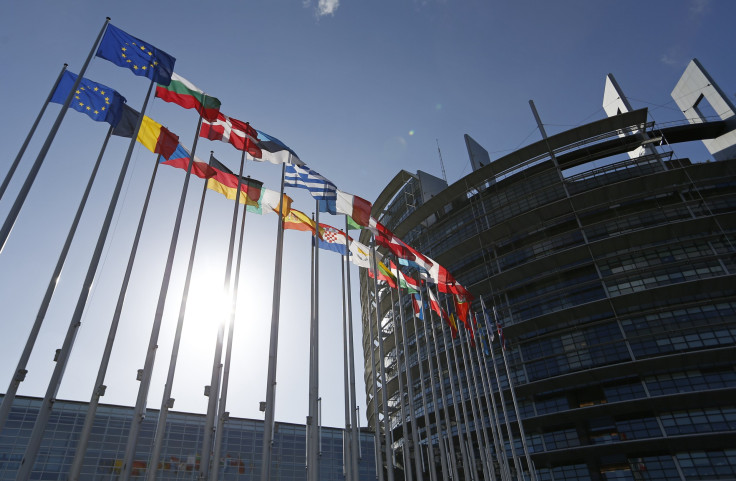Europe Passes Net Neutrality Law And Ends Mobile Roaming Charges, But Critics Still Hate The New Regs

LONDON -- The European Parliament on Tuesday voted overwhelmingly in favor of regulations that would enshrine net neutrality into law while eradicating mobile roaming charges across the continent. The move comes despite strong opposition to the legislation from privacy advocates, companies like Netflix and the inventor of the World Wide Web, Tim Berners-Lee.
Proponents of the new laws, including European Parliament member Pilar del Castillo Vera, say it will allow for a free and open Internet for all. Opponents claim the Parliament's rejection of more than 20 amendments to the new laws will allow companies to pay for preferential treatment, discriminate against certain types of traffic and give Internet service providers (ISPs) the ability to manipulate traffic.
The European Parliament passed the laws by a vote of 500-163, rejecting all amendments to the bill.
As Castillo stood up to speak following the passing of her bill, she was greeted in Parliament by hecklers and boos from opponents of the new laws. Castillo defended the laws. "We are creating conditions for equal access to the Internet, enshrining net neutrality principles. In addition, this legislation will make it possible for creativity, talent, innovation to flourish. We will have innovative services on the Internet," she said.
Open Letter On Loopholes
For the average consumer in Europe, net neutrality is nowhere near as divisive an issue as it has been in the U.S., where the Federal Communications Commission recently passed laws that were hailed as a victory for proponents of an open Internet. In Europe, however, regulators have come under fire from critics who claim there are major loopholes in the new laws.
In an open letter to Günther Oettinger, European Commissioner for Digital Economy and Society, online companies including Netflix, Kickstarter, Reddit, Soundcloud, Tumblr and WordPress said the rules contain major problems, including the ability for ISPs to offer so-called fast lanes to companies that can afford to pay through the broadly defined “specialized services” exception. "If some companies can pay to be in a fast lane, it will be more difficult for EU residents to access Web sites that can’t afford to pay extra fees. EU-based startups and small businesses would be left behind, unable to compete," the letter said.
Oettinger, however, welcomed the ruling:
This is excellent news for consumers & business! EP approves legislation on #netneutrality & end of #roaming
— Günther H. Oettinger (@GOettingerEU) October 27, 2015Zero-Rating
Another issue critics have with the legislation is that it allows for the use of zero-rating, permitting ISPs to exempt applications from users’ monthly bandwidth cap. Speaking about the introduction of zero-rating, Berners-Lee said, "Economic discrimination is just as harmful as technical discrimination, so ISPs will still be able to pick winners and losers online."
Barbara van Schewick, a Stanford law professor who previously commented on the net neutrality rules in the U.S., has spoken out publicly against the legislation passed by the European Union on Tuesday. In a post on Medium, van Schewick said the laws allow ISPs to prevent “impending” congestion. "That makes it easier for them to slow down traffic anytime, not just during times of actual congestion," she said.
French activist group La Quadrature Du Net called the new rules a major setback for the Internet. "Despite numerous citizens' calls, despite repeated international calls to support the amendments, including Tim Berners-Lee's, this ambiguous text leaves important loopholes and cannot ensure Net Neutrality. Worst, it allows commercial discrimination. It is a profound disillusion for all those who, throughout the years, battled to ensure net neutrality in Europe."
End To Roaming Charges
While the net neutrality rules in the legislation are highly controversial, the introduction of an end to roaming charges across the EU has been welcomed on all sides. Beginning June 2017, mobile phone operators will no longer be able to charge customers a premium for making or taking phone calls, sending text messages or using their data allowance when traveling within EU member states.
“If there’s a surefire way to baffle consumers, it’s to set a date to scrap loathed mobile roaming charges and then put the brakes on," Ernest Doku, telecom expert at uSwitch, told International Business Times. "Today all the to-ing and fro-ing is finally over, putting the stops on bill shock for those traveling within the EU, when roaming charges are scrapped from June 2017."
© Copyright IBTimes 2024. All rights reserved.





















